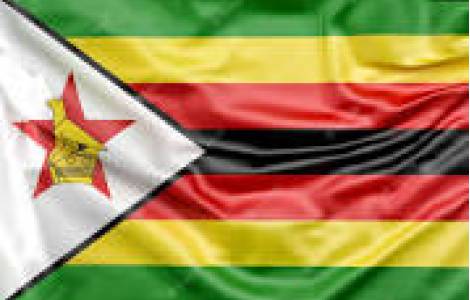
Harare (Fides News Agency) - Zimbabwe is approaching the August 23rd presidential elections amid fears and socio-economic crisis. The southern African country, liberated in 2017 from President-Master Robert Mugabe, who, starting 1987, ruled without interruption for 40 years, accused of ruling like a dictator, and of having led the nation to the brink of ruin, will soon head to the second free election in its history in the midst of tensions and serious social problems. The two main contenders are the same ones as the 2018 session, outgoing President Emmerson Mnangagwa and Nelson Chamisa, a 45-year-old lawyer and pastor leading the country's largest opposition party, the Citizens' Coalition for Change (CCC). Many analysts expect voting to take place in a hectic atmosphere, both due to fears of repression and fraud, as well as the increasingly high rates of hyperinflation, poverty and unemployment.
Should we expect an election marked by violence? At what point is the democratic process almost six years from the ouster of Mugabe (who died in 2019 at the age of 95, in Singapore, Ed.)? And how are Christians in the country contending with this phase? We asked Father Tryvis Moyo General Secretary of the Catholic Bishops' Conference of Zimbabwe. "On this occasion - the Redemptorist explains – the elections seem different from previous ones, in the sense that the leaders are speaking the language of peace and encouraging people to vote pacifically, without inciting hatred. The result is that so far (August 11, Ed.) we have not heard of many incidents or episodes of violence. This does not mean that violent incidents have been eliminated altogether. Last week a man in one of Harare's townships was lynched to death, and the closer we get to the date of the election, the more tense the atmosphere becomes. "
President Mnangagwa, during a gargantuan rally with more than 150,000 supporters in the capital, Harare, on August 9, argued that Zimbabwe would be definitively lost if the citizens did not re-elect him, and then accused Chamisa of promising aid from Washington to Zimbabwe's voters in exchange for votes. Instead the contender, in retaliation, accused the Zanu-PF (Mnangagwa's party, and also Mugabe's, Ed.) of "resorting to dirty tricks" because the party is in "panic mode". "The situation is very delicate – the secretary general of the Bishops' Conference continued - and we fear that the relatively peaceful climate of this period could lead to something more violent. In a context of great social tension, laden with poverty and scores of problems, it takes very little to trigger clashes. Leaders must not say anything that could be misinterpreted by supporters. Simultaneously however, freedom of expression and assembly must be guaranteed: many demonstrations called by the opposition were prohibited, over 50% of them, and that's a bad sign, we need informed voters and citizens who feel free to express themselves".
Inflation, high unemployment rates, political and economic instability have made Zimbabwe one of the poorest countries on the continent and in the world, a place where living is increasingly arduous.
"Since 2000 our economy – the Redemptorist priest went on – has never been stable, unemployment has always been very high and this has led to a brain drain of biblical dimensions from the country, many go to South Africa, others to Europe or elsewhere in the world, our diaspora is now very well-nourished. Obviously, without prepared, educated and specialized generations, it is very difficult for the country to get back up; only the very old or very young remain here, what's missing, again, is a generation that can lead Zimbabwe out of this situation. Infrastructure is not maintained as it should be, investments are struggling to arrive. Another big problem is that although we have our national currency, the Zimbabwean dollar, we tend to prefer US dollars here. For the poor and the unemployed, paying with prices tied to the American dollar only exacerbates the situation. After Mugabe, we saw a slight improvement in the social situation, the progress of roads and buildings in cities but, at the same time, we could say that in terms of rights there's actually been a setback, the democratic space in some areas has shrunk. Draconian laws have been issued and one can easily go to prison for political dissent alone ".
In a country with a largely Christian population (with 75% of baptized individuals, belonging to various evangelical and Protestant denominations, whereas Catholics are between 5 and 6%, Ed.), the Churches, gathered under the Council of Churches of Zimbabwe umbrella, have always played an important role on a social and political level.
"Churches facilitate the paths of peace constantly in Zimbabwe, and regularly meet with the political leaders of different parties before, during and after the electoral process. For us this is a decisive function that makes our role credible, in order to persuade leaders and their followers, and to always find roads that unite, without division. Catholics have always been at the forefront in terms of asking leaders to be responsible, to commit to creating free, democratic spaces to render these elections free and democratic. We no longer want to see elections as opportunities for clashes, for the fear of violence among the population, ultimately because in the end they always inflict further damage to the country's economy. We need to know that Zimbabwe is moving forward, and that the toxic policies of the past shall remain but a memory. There is a huge need to reform national institutions if they are to remain free and independent. " (LA) (Fides News Agency 17/8/2023)
 ASIA/VIETNAM - Vietnamese Catholic communities stand alongside women in need to combat mass abortion
ASIA/VIETNAM - Vietnamese Catholic communities stand alongside women in need to combat mass abortion